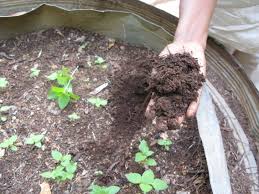 Everything breaks down - MorgueFile
Everything breaks down - MorgueFile I saw a movie about this the other day. One man alone in a return flight to Mars eats food from a dispenser, knowing full well his faeces and urine have been reconstituted.
We might not want to consider this stinky problem, but, as my father told me when I faced my first job interview, “Just remember. Everyone uses the lavatory each morning. We're all human beings.”
With resources dwindling as the population increases, using our waste products might be necessary in the future.
Eight other uses for human waste:
1) Drink it. NASA is developing a complex and expensive machine that purifies human urine to recycle the water for astronauts to drink. And here on Earth, if you are trapped in a desert with no water and can't stomach the thought of drinking straight urine, make a solar still. The still uses the sun's radiation to evaporate water from the urine, collecting the condensate on a surface, such as plastic wrap, and channelling it into a container to drink.
2) Urine powered generator.
3) Fertilizer.
4) Animal feed. After processing, human waste makes nutritious farm animal and fish feed. Also, flies can be lured to the evil-smelling pile and then trapped, thereby cutting down on increase.
 Composted human waste - en.wikipedia.org
Composted human waste - en.wikipedia.org 6) Grow mushrooms and watercress. To entice Bolivian people to use public lavatories, compost from correctly used latrines was spread on reforested land planted with Monterrey pine saplings. The pine trees provide a habitat for expensive bolete mushrooms, which can generate relatively high incomes for Bolivian communities.
In an odd experiment in raising watercress, a Web page that is enthusiastically named drinkpeedrinkpeedrinkpee offers a kit and a how-to guide to growing (supposedly) edible watercress in a bowl full of urine.
7) Biogas production.
8) Hydrogen gas production. Source: Engineering for Change.
Of course, the hippies from the 70s had the right idea with their compost toilets. You'd sit on the seat above, and your product would spatter a straw covered bin below—no smell, no waste. And used on the garden a few years later.
But what of the astronauts? No matter how the food was presented, could you face a future of ingesting your own properly treated output?





 RSS Feed
RSS Feed
